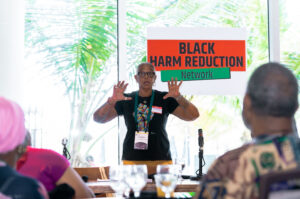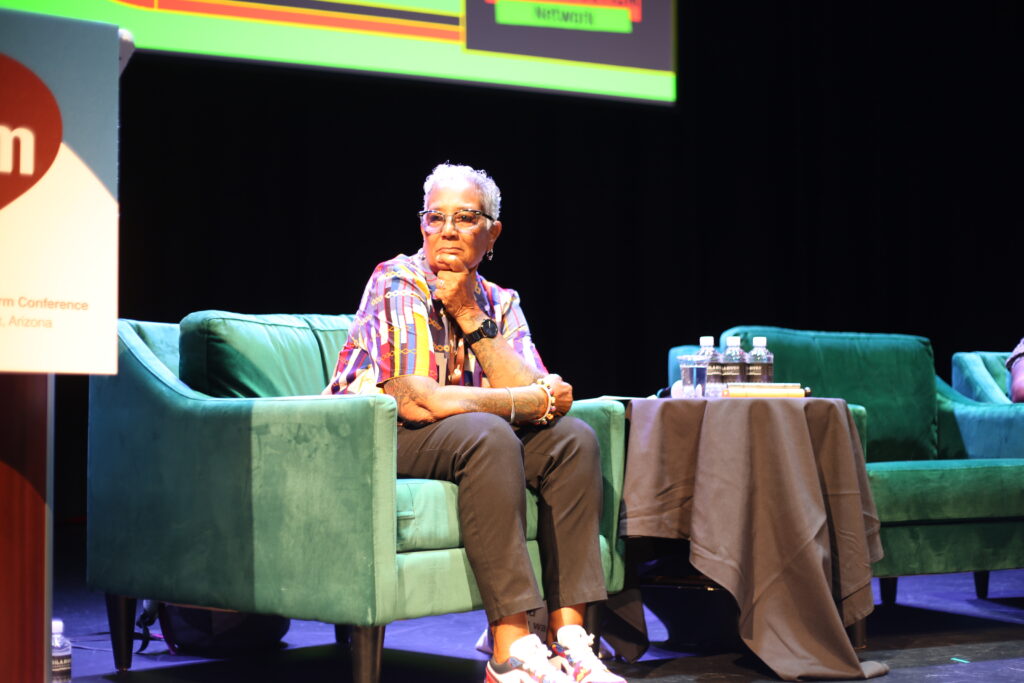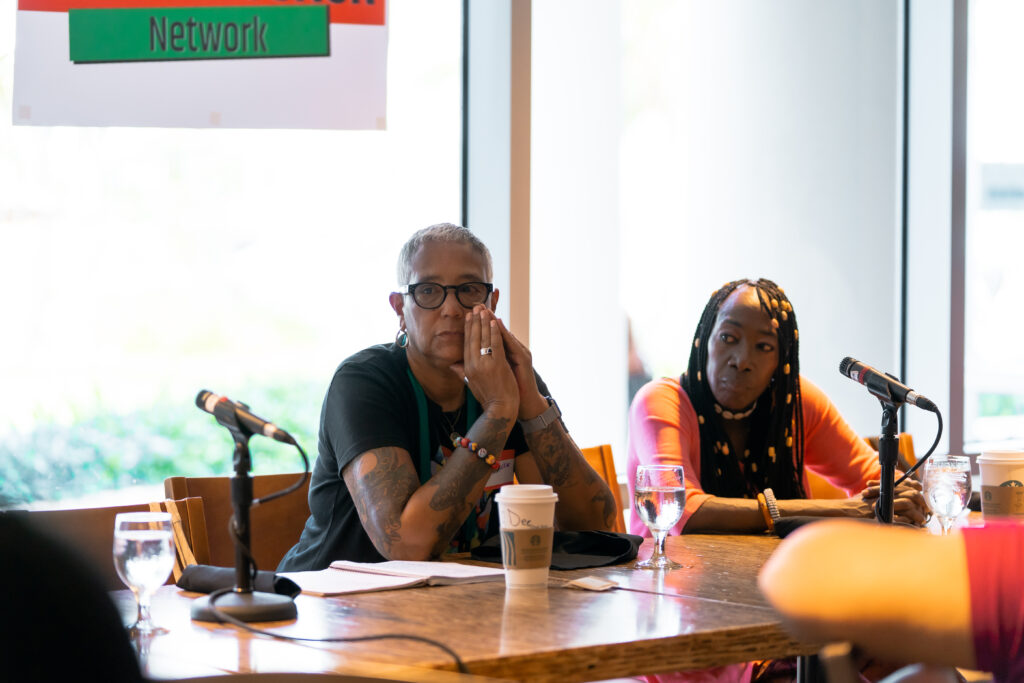Black Harm Reduction Network co-founder focuses on path ahead
Rucker discusses the heart of a vision
Making a way out of no way is not new to Joy Rucker, co-founder of the Black Harm Reduction Network (BHRN), who has worked at the intersections of substance use, HIV, houselessness, and mental health issues for several decades.
“I started in HIV when there was no funding, and we knew that we needed funding in order to help people and save people, and we never gave up on that vision. And we held the government accountable for lives, and the same thing with harm reduction…it’s not for the weak at heart, that’s for sure – you have to know that you’re in a war against a system that’s been in place since colonization happened, so it’s not going to happen overnight,” she said.
As one of the BHRN’s co-founders, she’s been with the collective from the very beginning, when the late Imani Woods first envisioned the concept for the network, and Rucker has since taken on the role of planning out the infrastructure for the BHRN – slated to soon become an official 501(c)(3).

Photo courtesy of Joshua Uquillas
While the harm reduction movement itself has grown since Rucker first started her intersectional work – doing outreach to people who injected/inject drugs in Massachusetts and becoming one of the first National Harm Reduction Coalition (NHRC) trainers – she notes there is much progress to be made, particularly by, with, and for Black folks to save lives and create a world where Black people who use drugs and all Black people are free from the harms of interconnected oppressive systems and beliefs.
“It’s not just the drugs,” Rucker said.
“It’s the lack of access to quality medical care…to grocery stores, housing…taking a broader look at the harm that Black people face in this country and drug use is part of that – and especially with the overdose epidemic, we still have the highest numbers of deaths and we’re not at very many tables talking about where the opioid settlement money should go,” she continued.
The BHRN co-founder said it’s already known that crucial funding is going to the wrong places, and by the time any of those funds are provided to the community – if money even is invested in communities – it will be a minuscule amount that won’t be enough to make a tremendous impact to support the people who need it most.
These were just some of the reasons Rucker named as to why the formation and growth of the BHRN has been so essential, and the work that lies ahead.
“We also think that there’s a different way for us to talk about harm reduction in the Black community…the harm reduction movement never addressed the crack epidemic in the Black community,” she noted, naming the damage that was done during the height of the crack epidemic and in its wake.

Photo courtesy of Mark Jenkins
She said, “We have to speak to the concerns of the [Black] community while talking about harm reduction and the way that makes sense to empower our community that the harm reduction movement as a whole has not done.”
The BHRN, which represents Black folks from around the country across a range of ages, backgrounds, and experiences, works to serve as a national voice advocating for Black-centered federal and state public health, criminal legal system, and drug policies and support regional networks of Black-led and Black-centered harm reduction initiatives. The network will provide technical assistance, mentoring, and leadership development as well as work on policy, fundraising, and networking.
Rucker, whose work has spanned nationally for over 30 years, said the BHRN continues to grow, and welcomes “everybody that wants to come to the table and wants to be a member, and cares about Black people and how we can reduce the harm.”
As she reflected on the BHRN’s origins and how it’s transformed into the network it is today, she pointed to commitment and unwavering belief.
“You never give up on a vision. You just never give up…as long as you keep the vision in front of you, and that vision is the heart of what you want to do in the world, you are eventually going to find the people that are going to help you do that.”
To learn more about the network, click here:
https://www.lac.org/major-project/black-harm-reduction-network
or reach out to the collective’s Facebook group page: https://www.facebook.com/groups/BlackHR.

Photo courtesy of Joshua Uquillas
